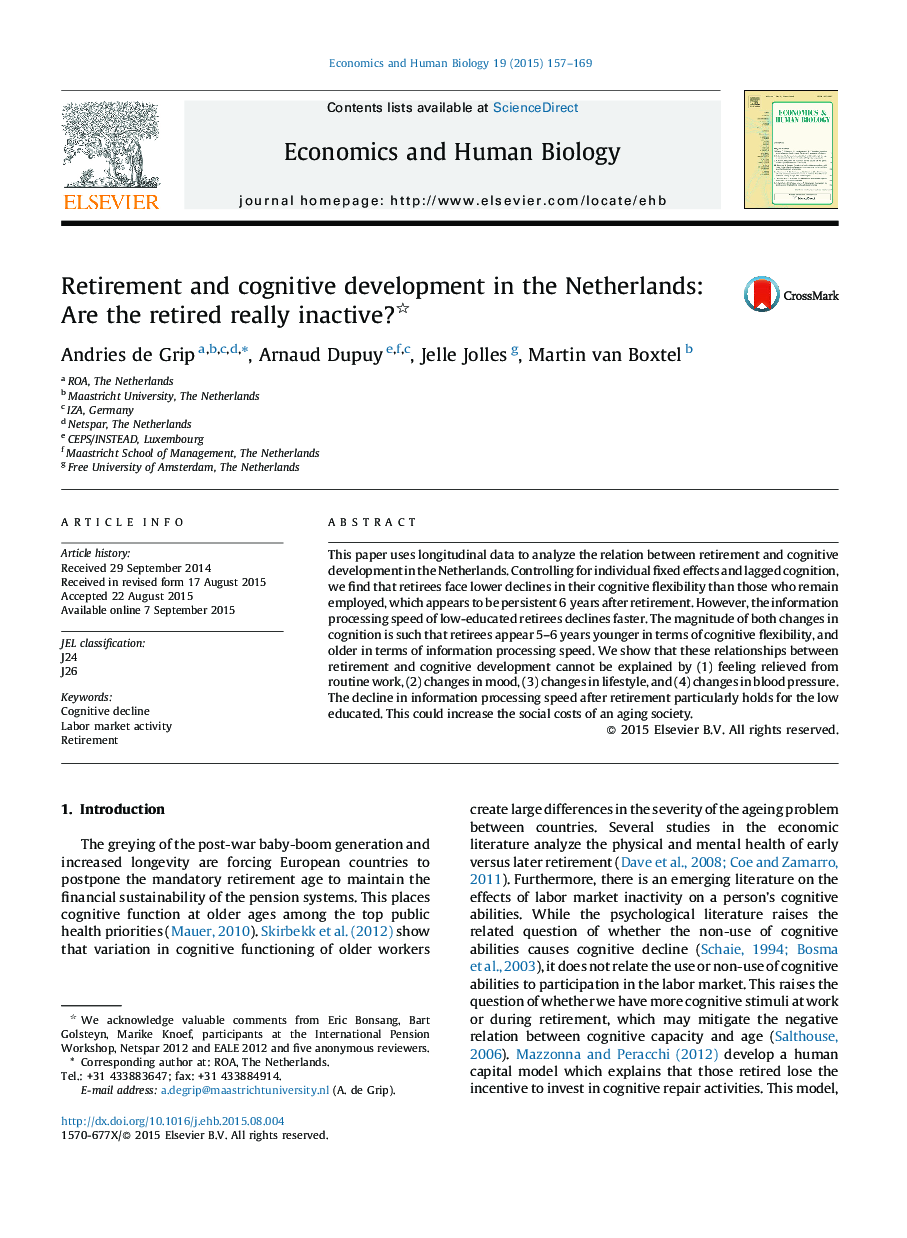| Article ID | Journal | Published Year | Pages | File Type |
|---|---|---|---|---|
| 5056939 | Economics & Human Biology | 2015 | 13 Pages |
â¢Retirees face smaller declines in cognitive flexibility than those who remain employed, hence appearing to be cognitively speaking 5-6 years younger.â¢Low-educated retirees however face greater declines in information processing speed, which makes them cognitively speaking 5-6 years older.â¢We found no evidence that changes in lifestyle and mood could explain this.â¢Activating low-educated retirees could lower the social costs of an aging society.
This paper uses longitudinal data to analyze the relation between retirement and cognitive development in the Netherlands. Controlling for individual fixed effects and lagged cognition, we find that retirees face lower declines in their cognitive flexibility than those who remain employed, which appears to be persistent 6 years after retirement. However, the information processing speed of low-educated retirees declines faster. The magnitude of both changes in cognition is such that retirees appear 5-6 years younger in terms of cognitive flexibility, and older in terms of information processing speed. We show that these relationships between retirement and cognitive development cannot be explained by (1) feeling relieved from routine work, (2) changes in mood, (3) changes in lifestyle, and (4) changes in blood pressure. The decline in information processing speed after retirement particularly holds for the low educated. This could increase the social costs of an aging society.
